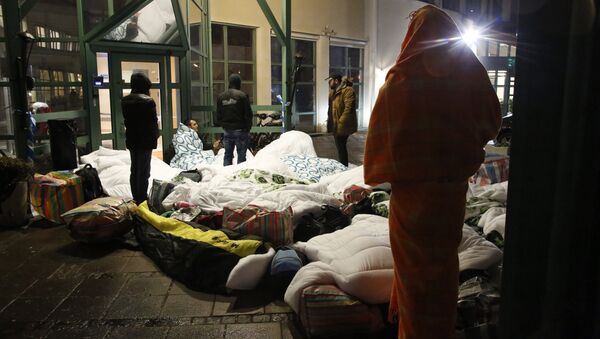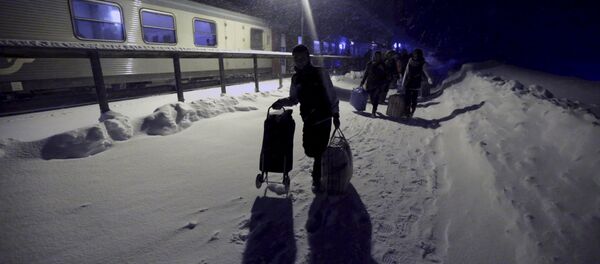Following a year in which asylum seekers arriving in Sweden (about 163,000, according to the BBC) outnumbered babies being born in the nation's hospitals (approximately 115,000), popular attitudes towards refugees have soured substantially. According to a survey by the polling institute Novus, commissioned by the public TV broadcaster SVT, nearly 70 percent of Swedes think that their government's plan to introduce tougher immigration rules will benefit the country.
Over 1,000 people throughout the country were asked by Novus how they viewed the government's proposal to introduce stricter asylum rules, which will be discussed by the nation's parliament this spring.
A clear majority of Swedes are in favor of the proposal, according to the Novus poll: 69 percent of respondents answered that they think the proposal is fairly or very good, while 22 percent say it is somewhat or rather bad.
In brief, the restrictions suggest that 1-3 year temporary residence permits should be granted to incoming asylum seekers rather than permanent residence permits; the latter were a given earlier. The new rules dictate that the opportunities for family immigration and reunification should also be limited. On top of that, the government is expected to increase its requirements for prospective migrants. The law will apply for three years.
Among those who support the proposal, the most common reasons are "we can't help more asylum seekers in a dignified manner" and "welfare is threatened by excessive immigration."
The nay-sayers, on the other hand, believe that "it is a duty to help people in exile" and "Sweden should be one of the world's leading countries with regards to humane migration policy."
Men are in general more positive than women, but even among women a broad majority is still supportive of the proposal. Older people are more positive than younger ones, but in the youngest age group, a majority regards the proposal as positive.
Those who vote for the anti-immigration Swedish Democrats party are the ones who are the most supportive of the proposal. Upper middle class voters are generally more positive than those who vote for 'red-green' parties.
The multi-party agreement on introducing a stricter refugee policy has been criticized, above all, by the Left Party (Vänsterpartiet), the Centre Party (Centerpartiet) and the Green Party (Miljöpartiet).
Sweden, which according to the country's Migration Board received a total of 150,000 official asylum requests last year alone, has earned a reputation as one of Europe's most refugee-friendly countries. According to the state budget from 2014, Sweden's outlays on migration-related subjects (12.5 bln SEK) were on par with the country's expenditure on culture (12,8 bln SEK). As of 2014, 1.6 mln of the Swedish population had been born abroad out of nearly 10 mln people; the number is expected to have risen greatly since then.




